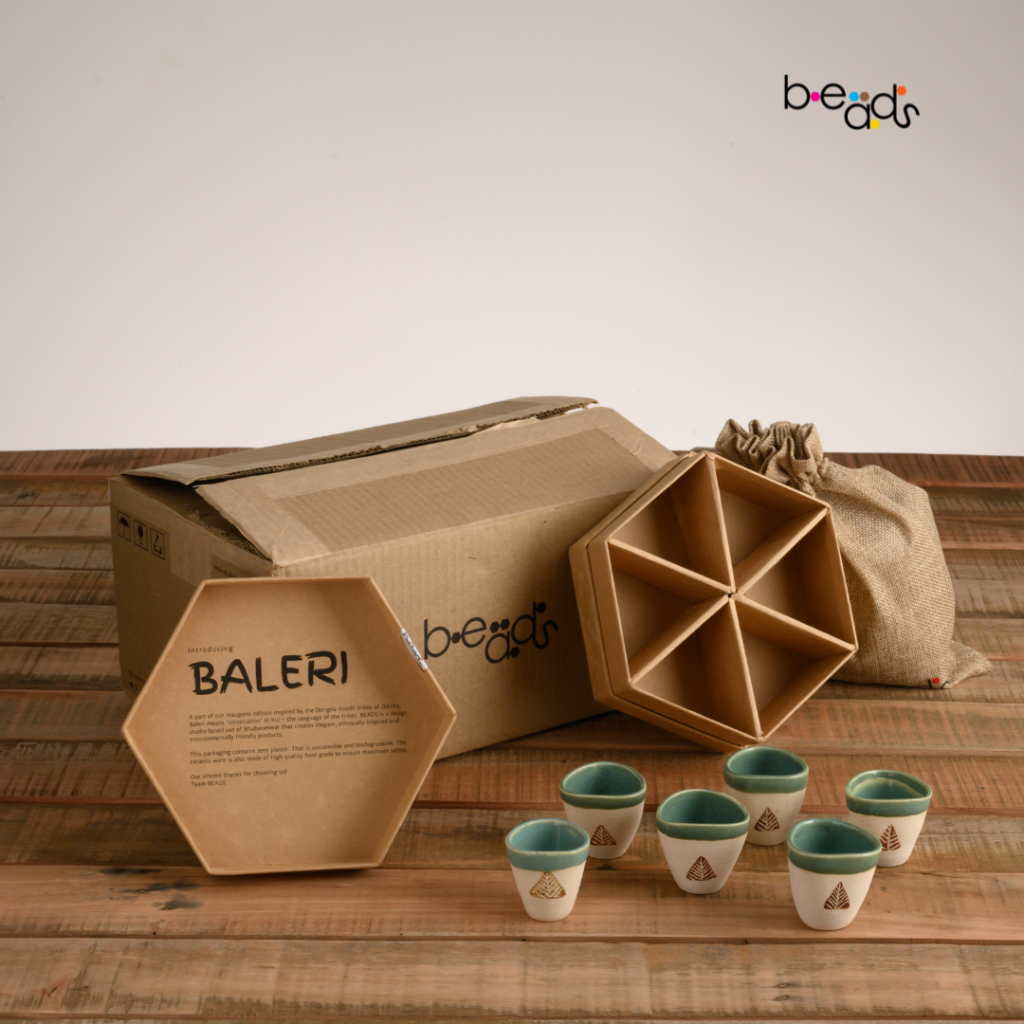As the year draws to a close and we eagerly anticipate the dawn of a new chapter, our minds are abuzz with plans for celebrations, resolutions, and the thrill of new beginnings. It’s a time when we meticulously prepare for festivities- decked with gifts neatly wrapped, menus thoughtfully planned, and toasts eagerly anticipated. Yet, amidst the jubilation and anticipation, let’s pause for a moment. Beyond the confetti, the clinking glasses, and the countdown to midnight, let’s consider a different kind of preparation—a preparation for growth, conscious living, and a sustainable future.
The New Year isn’t merely about turning the page on the calendar; it’s an opportunity to reflect on our lifestyles, our choices, and the footprint we leave on this planet. As we gear up for the celebrations, it’s essential to ponder: Are our plans solely centred around the material aspects of the festivities, or do they encompass a deeper, more profound transformation within ourselves and our relationship with the environment?
In the rush of excitement, it’s easy to overlook the impact of our actions on the world around us. Every gift exchanged, every purchase made, and every item on our menu contributes to a larger narrative—a narrative that either supports or challenges the sustainability of our existence. The dawn of a new year beckons us not only to plan parties but to chart a course towards personal growth and a more conscientious way of living.
Are we merely consumers, swept away by the tide of commercialism, or are we mindful individuals striving to minimize our ecological footprint?
Perhaps, amidst the euphoria, we can make room for resolutions that transcend personal space and embrace a larger, more encompassing vision—a vision that encompasses sustainability in its truest form. Sustainability isn’t just a buzzword; it’s a commitment to responsible living—a commitment that encompasses our consumption habits, our support for ethical brands, and our efforts to minimize waste.
So, as we gear up for the countdown, let’s not only prepare our festivities but also carve out intentions for growth—growth that aligns with our values, nurtures our souls, and protects the planet we call home.

The Call for Change
In the face of escalating environmental concerns and the adverse effects of climate change, the call for change has never been more resounding. The urgency to adopt sustainable practices is not merely an option but an imperative necessity for the survival of our planet and future generations.
Environmental Impact of Consumerism
Our modern consumerist culture has fostered a throwaway mentality, promoting excessive consumption and disposability. The impact of this culture on our planet is staggering. Mountains of waste, carbon emissions from manufacturing, and the depletion of natural resources are just the tip of the iceberg. The rampant consumerism that has become ingrained in society is leading us down a path of environmental degradation, threatening ecosystems and biodiversity.
Reassessing Habits for a Reduced Carbon Footprint
As we approach the dawn of a new year, it’s essential to reflect on our past actions and their implications. Every purchase, every decision, every action has an environmental footprint. Acknowledging this reality is the first step toward positive change.
The Imperative for Sustainable Living
The need to shift towards sustainable living practices has become crucial. It’s about re-evaluating our relationship with the environment and recognizing the finite nature of our planet’s resources. Sustainable living isn’t just a trend; it’s a conscious and responsible choice that impacts not only the environment but also our well-being.
Learning from Indigenous Communities
While today’s society grapples with the repercussions of overconsumption, there is much to learn from indigenous communities that have long thrived in harmony with nature. Take, for instance, the Dongria Kondha tribe, nestled in the Niyamgiri Hills of India. These tribal communities practice a lifestyle deeply rooted in sustainability and coexistence with their environment.
Adopting Slow and Sustainable Lifestyles
The Dongria Kondha’s traditional way of life revolves around sustainability. They practice subsistence agriculture, cultivating crops that are integral to their diet and culture. They employ traditional methods that preserve biodiversity and soil health.
Harmonious Coexistence with Nature:
The Dongria Kondha exhibit a deep reverence for nature. Their spiritual beliefs are intertwined with the land they inhabit, and they meticulously protect their sacred forests. Their lifestyle emphasizes the importance of living in harmony with nature, a concept modern society can greatly benefit from.
Mindful Consumption
Mindful consumption can be understood by asking: “Before making a purchase, am I considering the necessity of this item, its environmental impact, and whether it aligns with my values?” This approach involves thoughtful consideration of the products we buy, focusing on necessity, sustainability, and personal values rather than impulsive or excessive consumption.

Evaluating True Needs vs. Wants
Often, we’re driven by marketing or trends to purchase items we don’t necessarily need. Remember the trend of TikTok or Instagram made me buy these. We need to consider whether a purchase fulfils a genuine requirement or is driven by impulse or societal pressure.
Quality Over Quantity
As a brand, we ardently champion the ethos of investing in enduring, high-quality products. We firmly believe that prioritizing such items, despite their potentially higher initial cost, yields immeasurable benefits in the long haul. These durable products not only outlast their counterparts but also significantly minimize the need for frequent replacements, ultimately culminating in a considerable reduction in waste production.
Research and Consideration
Do you often delve into product research before making a purchase? Taking a moment to explore a brand’s sustainability practices, ethical sourcing, and production methods could significantly influence your decision-making process. Examining factors such as material sourcing, manufacturing processes, and the company’s dedication to social and environmental responsibility can truly shape your choice. Your conscious consumer choices wield immense power in encouraging responsible and ethical practices among brands.
Supporting Local and Ethical Businesses
As a passionate advocate for sustainable living, we deeply resonate with the encouragement to support local businesses and artisans. Their dedication to crafting handmade, ethically produced, and sustainably sourced products is commendable. These small enterprises prioritize sustainability, not just in their products but also in fostering a thriving local economy. It’s a cause close to my heart, aligning with my values and commitment to supporting conscientious practices.
Minimalism and Mindful Consumption
Minimalism intertwines with mindful consumption by promoting deliberate living, decluttering spaces, and emphasizing value-centric choices. It encourages intentional decisions, prioritizing what truly matters, diminishing the urge for excess, and fostering a lifestyle aligned with essentials rather than unnecessary consumption.
Supporting Genuine Sustainability
Greenwashing prevails as companies mask true sustainability. To spot genuine brands, scrutinize practices beyond slogans. Seek certifications and probe transparent supply chains. Supporting ethical brands demands research—prioritize transparency and certified commitments to ensure authentic sustainability in consumer choices.
Reducing Waste
Do you know waste reduction emerges as a pivotal strand? It encapsulates a journey of conscious choices that profoundly impact our planet’s future.
It transcends a mere environmental concern; it symbolizes a heartfelt dedication to minimising our ecological footprint through everyday actions. Minimizing single-use plastics, integrating recycling and composting into daily routines — these seemingly small steps reverberate with the resonance of responsibility towards our planet’s well-being. Each reused item, every composted organic matter, collectively culminates in a significant reduction in overall waste production. These seemingly modest shifts cultivate a path towards a more sustainable future.
Packaging waste contributes significantly to landfills. Brands need to prioritize sustainable packaging to combat this escalating issue. Materials like recycled paper, honeycombed paper, old newspapers, or even biodegradable options such as leaves not only alleviate environmental strain but also infuse products with a natural charm. Conscious packaging transcends environmental concerns by diminishing landfill pressure and reflecting a brand’s genuine dedication to a sustainable ethos.


Connecting with Nature
Engaging with nature yields deep psychological and emotional rewards. Embracing the outdoors fosters a profound connection with the environment, promoting tranquillity and stress reduction. Participation in outdoor pursuits such as hiking and beach clean-ups not only rejuvenates but also contributes to conservation endeavours. As a brand promoting slow living and sustainability, BEADS draws inspiration from the Dongria Kondh tribe in their inaugural edition, honouring their wisdom. The upcoming exclusive collection highlights Odisha’s climate challenges, spotlighting the vulnerable coastal belt and championing environmental awareness and conservation.
This new year embrace ‘sustainability’
The New Year is more than a mere shift in time; it’s a canvas to ponder our impact on the world. So, as we usher in the New Year, let “sustainability” be more than a mere word. Let it be the inspiration guiding our choices, nurturing our values, and safeguarding the planet we call home. In the dawn of 2024, let’s collectively embrace a future illuminated by sustainable living and conscientious growth.









